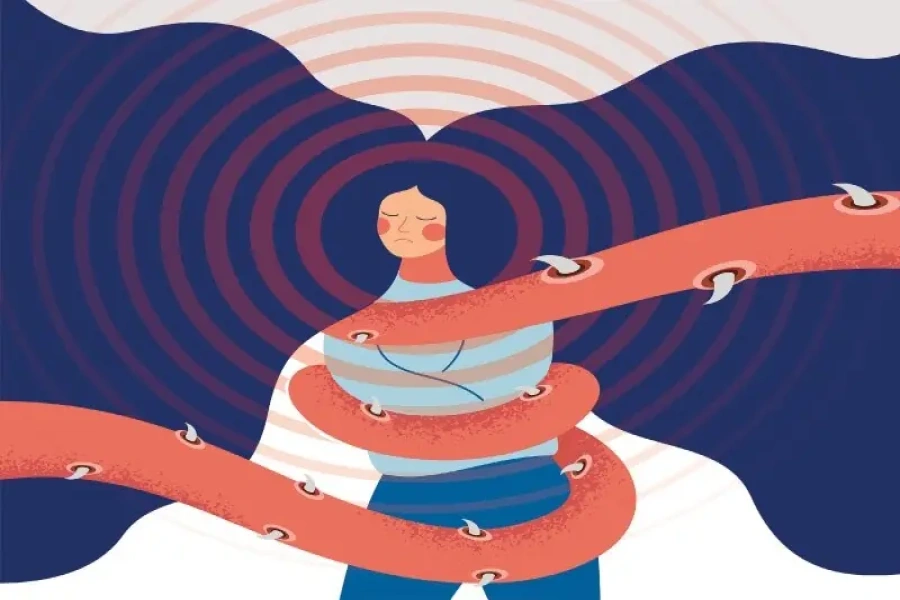It could be the high expectations attached to a film starring the two Bollywoodbig names, or a film that’s directed by Kunal Kohli, or just the colorful vibrant look of the film; but TMK disappoints bitterly.[break]
Going with the theme that one never knows where and how they can meet ‘the one,’ the film is divided into three parts, and all three are love stories set at different time periods. But for all stories to be showcased as a single package there needs to be a connection, a common thread that not only adds to the beauty of the overall film but also connects the audiences to the stories. And no, the film has no such coherence except repetitive viewing of two characters in different atmospheres.
The first story that is set in 1960, we have Shahid Kapoor as Govind, a wannabe musician who happens to share a train compartment with a film star, Rukhsar, who is Priyanka Chopra. The two bond over jamuns and kairees but due to a small misunderstanding, created by Maahi (Prachi Desai), the lovers part ways.
The second story is set in today’s Internet age with social network addicts Krish and Radha in the lead. Both are college students who happen to bang into each other, literally, and after a small misunderstanding of who stole whose phone, bond over booze and music.
Their story takes a tragic turn when Meera, Shahid’s ex-girlfriend played by Neha Sharma, uploads Shahid’s personal pictures on Facebook.
In the third story, set in 1910, we have Aradhana and Javed. While Aradhana is the daughter of a freedom fighter who takes part in all her father’s rebellion, Javed is a roadside Romeo. The two meet when the English guards are chasing our Romeo for flirting with an officer’s daughter and Aradhana provides him hiding space.

The stories are set at different times and the idea itself holds immense potential. But the film falters, and not just in a single story as all three parts are predictable, repetitive, clichéd and boring.
Let alone the content, these tales are the same even in terms of storytelling. The film’s structure is also so dimwitted that the three stories are assigned one dance number each before and after the interval.
Visually, however, the 1960 part is quite appealing, the special effects used to create the old Bombay needs to be applauded, and that’s only if they had such fancy lampposts on the streets back then.
The 1910 setting is again very pretty with street vendors offering brightly colored sweetmeats to gorgeous fulkari embroidery shawls worn by Aradhana. But every time you rejoice over the makers and their immense effort on art direction, you question them on why they couldn’t put in the same effort to developing the story.
Throughout the film, we get scenic shots from Sunil Patel, the cinematographer and the Bombay part is absolute grandeur. However, there are also times, especially during the songs when the camera panning makes the audiences dizzy.
Sajid-Wajid, the duo, has done a decent job in the music department. Tracks like ‘Mukhtasar,’ ‘Allah Jaane,’ and ‘Jabse Mere Dil Ko Uff’ are quite good. However, some of the tracks seem unnecessary, breaking the rhythm of the film.
Acting-wise, Shahid Kapoor is pretty convincing. He, as a matter of fact, looks cute while doing Raj Kapoor and Charlie Chaplin-inspired dancing in the rain scenes as Govind.
As the poetic Romeo too, he isn’t bad, only why does he have straightened hair when portraying a guy from 1910? However, we will easily forgive that, but what we won’t forgive is the fact that both Priyanka and Shahid look nothing like college students who would fight over twitter and Facebook posts.
There are some scenes that are unnecessarily irritating and do not help in building the intention of the director. A particular example would be the one part where the couple engages in a sort of a battle over social networking sites, leaving the audience irritated.
Also, an unnecessary tragic climax leaves you wondering as to what the director and both the actors must have been thinking. Priyanka Chopra has offered nothing new in the film.
We all know hers is a pretty face, but we also know that the lady can act. The actor Priyanka is badly missed in the film and she also has overdone expressions in a few parts. But the fault lies in the plotline.
How much can an actor do if a plot itself is vacant? Each of the three stories is a boy-meets-girl episode and even more surprising is the fact that Kohli would agree upon making something like this.
There’s a part of the film where Javed is released from a three-month term in jail to find out that his love Aradhana is already married. Later, when his parents force him to get married too, he meets her on his wedding day to find her dressed in white, her husband being dead. Very conveniently, he walks off the mosque to hold Aradhana’s hand.
“Teri Meri Kahani” is a waste of time if clichéd stories and lots of songs and dances aren’t what you’re looking for. Concept-wise, a film that began well with three short stories woven into three different time periods is commendable.
However, the filmmaker has spoiled it with equally distributed song-and-dance numbers, and a very melodramatic feel that makes the audiences almost foolish for entering the theatre.
Just thinking out loud, what if the previous eras shown in the film were shot in monochrome?
Screening at QFX Cinemas
Life a Cliché







































